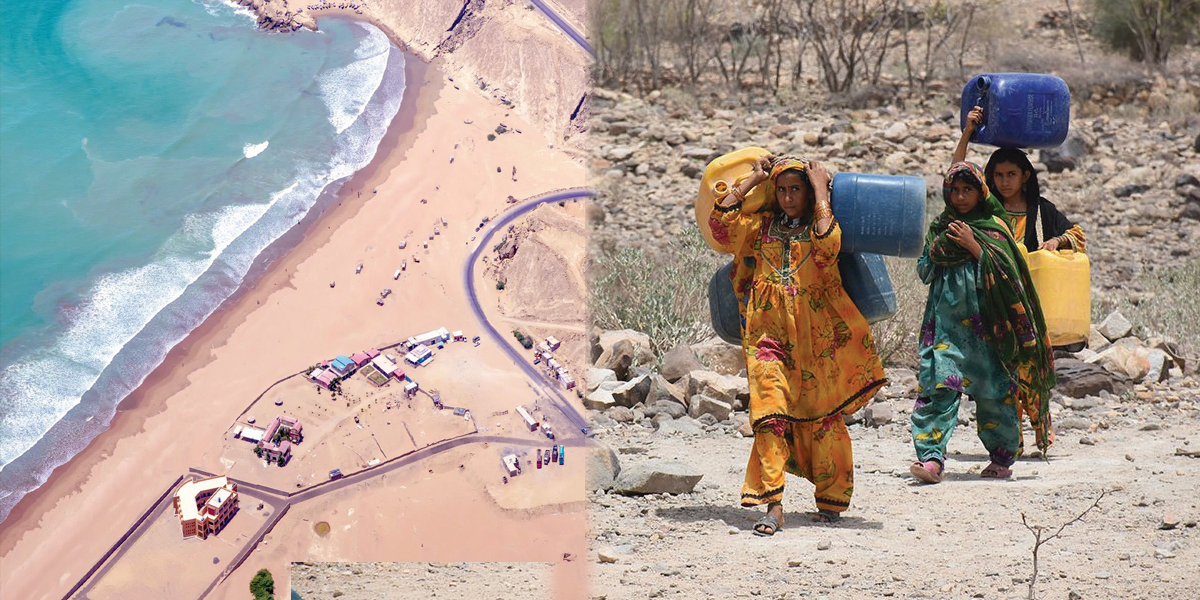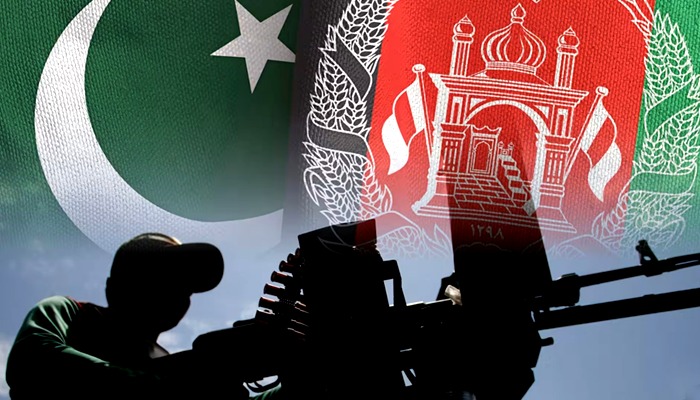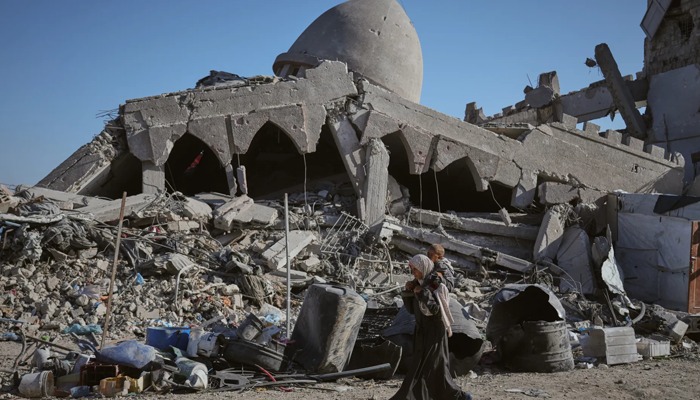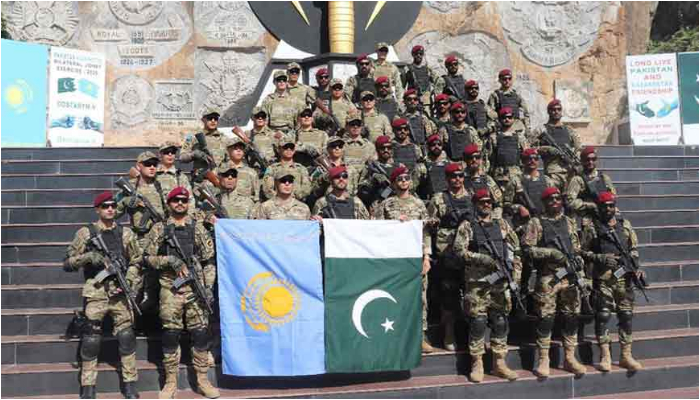In December 2010, the Japanese government gave Rs800 million to the government of Balochistan for the rehabilitation of the Pasni Fish Harbor, the economic hub of Pasni tehsil of Balochistan’s Gwadar district.
However, 12 years on, the fish harbor that provides for the livelihood of 90% of the population of the fishing town is still in a dilapidated state with local fishing boats – parked under an open sky – bearing the brunt of high waves and hurricanes that cause the owners yearly losses to the tune of millions of rupees.
This fishermen’s city is at the foot of the China-Pakistan Economic Corridor (CPEC) – a multi-billion dollar rails and road project which is a part of China’s ambitious Belt and Road Initiative (BRI). However, Pasni, like the rest of the cities on Balochistan’s coastal belt, are worst affected by poverty and unemployment.
“No new boat has been built at Pasni for the last one year due to non-rehabilitation of the Pasni Fish Harbor. Moreover, due to Covid-19, five out of six boat making factories are closed,” said Sadiq Baloch, 32, a local boat-maker while repairing an old boat with three other labourers.
Documents show that the provincial government of Balochistan had approved the Pasni Fish Harbor Rehabilitation Project soon after receiving the Japanese fund and had also set up a project management unit to run the project
According to sources, a large portion of the fund was later spent on the rehabilitation project, as well as on salaries of the staff of the Pasni Fish Harbor Authority, whose exact number is not available.
However, the condition of the Pasni Fish Harbor did not improve despite the so-called rehabilitation work. In July 2020, a delegation of the CPEC Parliamentary Committee visited Pasni to review the rehabilitation of the Pasni Fish Harbor, including the jetty.
Later, the National Assembly Member from the area, Aslam Bhootani, met Prime Minister Imran Khan and apprised him of the problems of the fishermen of Pasni. Bhootani also raised the issue on the floor of the house.
On July 4, 2021, Balochistan Chief Secretary Motahar Niaz Rana, Planning Commission Secretary Amir Yaqub Sheikh, Secretary Fisheries Shahid Saleem Qureshi, Makran Commissioner Shah Irfan Gharshin, Fisheries Director General Tariq-ur-Rehman Baloch and other officials visited the Pasni Fish Harbour on the special instructions of the PM.
They listened to the problems of the local fishermen in an open meeting.
Prior to the meeting, Pasni Fish Harbor Authority Managing Director Babar Khan briefed Balochistan Chief Secretary Motahar Niaz Rana about the implementation of the Pasni Fish Harbor Authority Project and the jetty rehabilitation plan.
For the first time in the briefing, the Pasni Fish Harbor Authority officials acknowledged that dredging of the port that cost Rs260 million had been a complete failure. Dredging is the process of clearing the bed of a harbor, river, or other area of water by scooping out mud, weeds, and rubbish.
The National Accountability Board (NAB) inquired for four years into this loss of money and the Japanese fund. However, the country’s top graft buster failed to identify and punish the people responsible for this loss to the provincial exchequer.
During the briefing, the MD told the Balochistan Chief Secretary that completion of the rehabilitation project would provide an opportunity to 80,000 fishermen to participate in fishing activities while more than 5,000 fishing boats would be activated.
The chief secretary was also informed that rehabilitation of the Pasni jetty could be resumed by purchasing a dredger machine; by re-surveying the breakwater and designing a new jetty.
The Pasni Fish Harbor is, however, not the only project that has been a victim of neglect.
The entire southern Balochistan including the coastal belt is mired in poverty and its people face innumerable challenges including unemployment, backwardness and shortage of fuel, water and electricity.
However, successive provincial governments have failed to develop the coastal belt sometimes even after allocation of funds.
Here a case in point is Kund Malir beach. This beach – located in the Hingol National Park – is counted among the 50 most beautiful beaches in the world. However, the Balochistan government has not even provided such basic facilities at the resort like washrooms and restaurants.
Dr Naseer Ahmed – owner of one of the huts at Kund Malir – said the potential of this beautiful place has been neglected. “The government should make a plan for promoting tourism here and provide facilities where people can stay. Such measures will generate huge revenues for the government
He has said the terms of references (ToRs) of tenders should be relaxed for local investors who want to set up hotels or restaurants at the beach as strict ToRs are creating hurdles to investment.
One of the visitors From Karachi, Liqa Kashif said it is the most beautiful beach of the country which families visit to spend some time with nature. “Here we face problems like lack of washrooms, huts and restaurants. The government should provide these basic facilities,” she said.
Talking with reference to Balochistan’s coastal belt, Balochistan National Party (BNP) leader Sanaullah Baloch said the government has no policy to develop the coastal belt.
“There is no electricity, no investment, no infrastructure, no gas and basic facilities at the coastal belt. There is no development in the coastal belt.”
He said first of all maritime security must be ensured by stopping illegal fishing at the coastal belt.
“We can do aqua-fishing for food security at the belt. We can grow date plants using new technology; there is a need to set up polytechnic colleges in the area.
“Multiple sectors like banking, tourism, education and the energy sector must be developed in the belt. In order to encourage foreign investment, the government needs to provide foolproof security,” he said.
However, some people insist that the situation of southern Balochistan is not as bleak and that a number of initiatives are underway to improve the lives of the people of these areas.
Speaking to Bol News, Rehmat Dashti – the project director of the Gwadar-Lasbela Livelihoods Support Project (GLLSP) – said the GLLSP has been the most successful project undertaken in the coastal belt.
“It is most successful both due to the vast scope of its socio-economic facilitation of the people living under the poverty line as identified by the United Nations Index and also because of its increasing income and enhancing the livelihoods of rural people,” he said.
The International Front for Agriculture Development (IFAD) in partnership with the government of Balochistan launched a project in 2013 with an implantation period of 6 to 7 years.
The GLLSP is a joint venture started with the motive of facilitating 400 villages of these two poverty stricken districts with multiple projects and schemes worth USD 35.2 million.
The IFAD provided a loan of USD 30 million, whereas the government of Balochistan and local donors also contributed a few million dollars. Later, Saudi Arabia decided to chip in USD 3 million.
All the funds were allocated on multiple levels for three different developmental sectors – fisheries, community development and rural infrastructure. As a result of the GLLSP, there were significant gains in the targeted areas and population.
The main targeted population was provided vocational training with community mobilization and capacity building under the component of community development as many community organizations were also formed at village and union council (UC) levels with effective structures.
One of the objectives of the project was women empowerment, given the fact that rural women face far more hurdles than urban women as they live in a conservative environment without basic facilities. And in such circumstances those, who are also providers for their family, have no ray of hope.
Under the GLLSP, micro finance loans were provided to the women so that they could start their own small business and fortunately the recovery rate was 99%. To be specific Rs168m were allocated to provide micro-financing to local women entrepreneurs.
In the poverty stricken areas in the both districts, the villages were scattered throughout a barren landscape. These rural settlements were mostly connected by dirt tracks on which travelling was really difficult and dangerous.
Therefore, multiple roads were made under the project to connect the villages with main highways.
Specifically, more than 20 roads were built covering 138 kilometers which enabled the routes for public traffic and transport of goods. The roads were beneficial for fishermen the most because they made it easier to transport fishes to city hubs.
The people in these villages were affected by the waterborne diseases because of unavailability of clean drinking water. This project enabled three different projects worth Rs26 million for provision of clean drinking water. Now both the districts have access to clean drinking water and resultantly, a lesser number of children and adults are getting infected by waterborne diseases.
Overall 980 schemes were established under the venture which included drinking water schemes, solar schemes, drainage schemes, irrigation schemes and road schemes.
This project has been a success as it enabled multiple opportunities for the local men and women while implementing grass-root level activities, providing training and loans and constructing roads.
Investment and trade
Saeed Ahmed Sarparah, chief executive officer of the Balochistan Board of Investment & Trade (BBOIT) said the BBOIT is the only focal agency of the Balochistan government for Investment facilitation and promotion in all sectors including coastal development, fisheries, tourism, energy, agriculture, livestock and urban development.
The BBOIT facilitates the potential investors by enabling the Ease of Doing Business and reducing cost of doing business in the province by providing one-window facilitation and acting as a bridge between investors and all related provincial and federal departments.
There exists immense investment potential in each sector of the economy in Balochistan and the BBOIT is promoting those potential investment projects through various promotional activities.
“We have been able to attract more than 20 local and foreign companies who have shown interest and submitted their investment projects proposal in various sectors especially in renewable energy, coastal development, science and IT, fisheries and livestock sector.
“The total worth of these proposed projects is about $14 billion. These projects also include the $5 billion Gwadar to Hub fast-tract train project by a Singapore based company and $1.2 billion, 600 MW renewable energy project near Gwadar coastal belt by a Denmark based firm.
“Another firm from Germany has shown interest in establishing a 280 MW renewable energy project at the coastal belt near Hub, Lasbela by investing over $300 million.”
Sarparah said the BBOIT has been able to facilitate about 10 memorandums of understanding (MoUs) worth over $3 billion, between concerned government departments and investors, mostly foreign. The signing of these MoUs is expected in near future
He said one of the MoUs is about $500 million waste to energy projects in Quetta and Hub cities of Balochistan. The project will be undertaken respectively by a UK based company and a Finish company.
“Another MoU will be signed for establishment of an automobile manufacturing plant in Lasbela district with an investment of over $100 million,” he said.


















